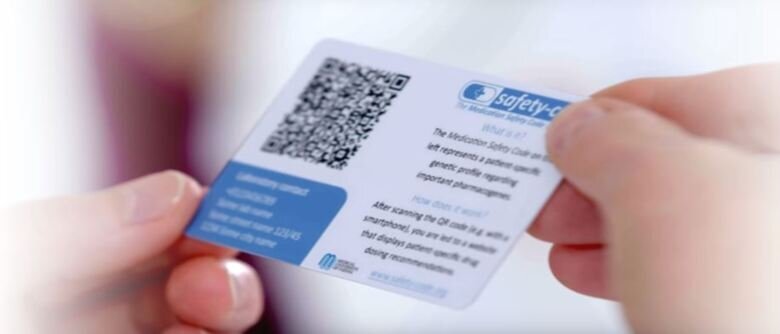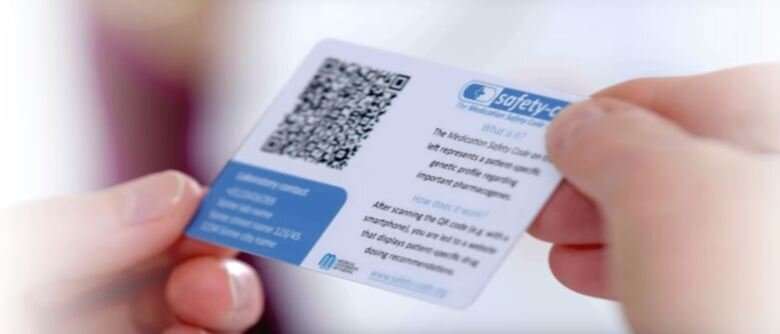

Patients can experience 30% fewer serious adverse reactions if their drugs are tailored to their genes, reports a study published in The Lancet. A European collaboration involving researchers from Karolinska Institutet suggests that a genetic analysis prior to drug therapy could significantly reduce suffering and health care costs.
A significant proportion of patients experience adverse reactions to their medication. Since we each carry a unique set of genes, we react differently to the same drugs. For example, some people break them down faster, meaning that they require a higher dose to obtain the desired effect.
DNA pass fits in the wallet
To overcome this problem, researchers from Leiden University Medical Center in the Netherlands, Karolinska Institutet and other collaborating institutions have developed the principle for a “DNA pass” that has been clinically validated in the recently published study.
“It’s basically a credit card-sized card with a magnetic strip containing all the important genetic data on a particular patient,” explains one of the study’s co-authors Magnus Ingelman-Sundberg, professor of molecular toxicology at the Department of Physiology and Pharmacology at Karolinska Institutet.
“When a patient’s card is scanned, doctors and pharmacists can work out the optimal dose of a drug for that particular individual.”
The study included almost 7,000 patients from seven European countries between March 2017 and June 2020 all of whom were genotyped with respect to variations in twelve specific genes of significance to drug metabolism, transport and side-effects. All participants then received their drugs either conventionally or with a genotype-based modification.
Twelve weeks after their drug regimen began, the patients were contacted by a specialist nurse about any adverse reactions, such as diarrhea, pain or loss of taste. The study concluded that such adverse reactions to drugs can be greatly reduced by analyzing the genes that code for enzymes that metabolize them.
“The patients who’d received genotype-driven treatment had, on average, 30% fewer adverse reactions than the controls,” says Professor Ingelman-Sundberg.
Sufficiently compelling data
Professor Ingelman-Sundberg, a long-standing expert at the European Medical Agency on the development of this method, believes that there is now sufficiently compelling data to warrant the widespread use of the DNA pass.
“I think we’ve come to the point where a genetic pass like this will be useful,” he says.
Globally, the problem of adverse reactions is considerable. In the EU, they cause up to 128,000 fatalities a year and up to 9% of all hospital admissions, a figure that more than doubles to 20% in people over 70. Moreover, the costs of adverse reactions are heavy and in Sweden alone are estimated to amount to 12 or 15 billion kronor a year.
“Our results strongly suggest that an initial genotyping of the patients will deliver significant savings to society,” says Professor Ingelman-Sundberg. “The genotyping itself need only be done once per patient at a maximum cost of 6,000 SEK. The general introduction of this predictive system could therefore go a long way towards reducing public health care costs.”
More information:
Jesse J Swen et al, A 12-gene pharmacogenetic panel to prevent adverse drug reactions: an open-label, multicentre, controlled, cluster-randomised crossover implementation study, The Lancet (2023). DOI: 10.1016/S0140-6736(22)01841-4
Journal information:
The Lancet
Source: Read Full Article